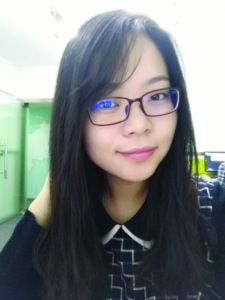It is perhaps not surprising given his enduring worldwide popularity, but Danish author Hans Christian Andersen also brings joy to Chinese people of all ages.
Many of his stories – such as ‘The Ugly Duckling’, ‘The Snow Queen’ and ‘The Emperor’s New Clothes’ – have been translated into Chinese and are very popular there.
But Andersen’s work is so much more than just pretty stories; the themes can be understood on many different levels and even support differing interpretations – depending on the prevailing societal and political norms.
The beginnings
In 1919 the author Zuoren Zhou first introduced Andersen’s fairy-tales to Chinese readers during the cultural and political flowering known as the May Fourth Movement by translating ‘The Little Match Girl’ into Chinese.
During this period, Chinese people felt oppressed by the corrupt feudalism and autocracy of the ruling classes, but gradually began to resist traditional authority and reject the autocracy of their rulers.
A number of Andersen’s stories struck a chord by revealing and criticising the corruption, autocracy and stupidity of the upper classes. This chimed well with the Chinese people’s yearning for freedom and democracy, so Andersen’s stories were broadly embraced.
A new perspective
By the 1930s, Chinese people had discovered the bitter truth that the mere expectation of a happy life cannot improve standards of living and produce real change.
Overthrowing autocratic dominion and developing the economy is more than just a fairy-tale; freedom has to be won through struggle and hard work. So Andersen’s stories were now frowned upon as mere escapism and fell out of favour with the people.
The year 1949 marked the founding of the People’s Republic of China. After this, the Chinese people didn’t need to seek guidance from fairy-tales to make the revolution successful. So Andersen’s stories began to be interpreted from a cultural standpoint, combining Chinese and Danish culture.
But what of today? How do modern young people interpret and understand Andersen’s stories? CPH POST interviewed some young Chinese people to find out.
Striking a match
Lishan Weng, an employee at the internet company Hong Xin, was “deeply affected” by both ‘The Little Match Girl’ and ‘The Ugly Duckling’ as a child.
He read ‘The Little Match Girl’ when he was very young and at that time felt very sad for its female protagonist: “It was hard for me to accept a girl’s death due to cold and starvation when I was a child.”

Now, as a grown-up, he has a better understanding of the story.
“The little girl died with a smile on her face and she saw some beautiful things using the lighted match. In contrast, at the same time, wealthy people were cheerfully celebrating Christmas Day,” said Weng.
“This story reflects the coldness and ruthlessness of society, but the smile on the little girl’s face tells me something about the beauty of human nature.”
Weng pointed out that Andersen criticised the upper classes through the death of the girl and showed his sympathy for poor people.
“Although the social structure is unfair and cold, there are also some good things in the world, like the girl’s smile. Similarly, even though there are many problems in our society, good things still exist,” added Weng.
Hints at ugly truths
Weng also changed his mind about The ‘Ugly Duckling’ when he grew up.
As a child he remembers noting how “the duckling eventually turned into a swan. It was really inspiring. When I was in primary school, this story told me that people can become successful as long as they work hard and overcome difficulties.”
Years later, though, he recalls that “after learning more about our society, I know the most important reason for the duckling to become a beautiful swan is that this duckling is born to be a swan! If it is not a swan in nature, then no matter how hard-working it is, this duckling will not change into a swan”.
Certainly, hard work and persistence are also important. “If it doesn’t work hard and overcome difficulties, maybe it will not end up turning into a swan.” The story tells him that innate skills and hard work are both important to personal development.
Initially, Weng thought the fairy-tales were more suitable for children to read and his understanding of them was at best superficial.
Now, he thinks that these stories incorporate Andersen’s personal thoughts and emotions.
“Combined with my own knowledge and experience, I can reach a deeper understanding of what Andersen wants to express through these stories, like human nature and social problems,” he said.
“I admire Andersen, because he can use the simplest words and stories to reflect extremely profound issues.”
New clothes, old truths
Yao Ma, a student at Lanzhou University, remembers ‘The Emperor’s New Clothes’ the best.

“When I first read this, I thought it was very strange and funny for an emperor to walk along the street in his new ‘clothes’.” However, she gradually began to understand the human weakness reflected in the story.
“The emperor deceives himself and others, while his ministers pretend they can see the new ‘clothes’ in order to look after their own interests. Ironically, nobody dares to tell the truth, except children,” she added.
Ma points out that con-men like these prey on human weakness. People are afraid to tell the truth because they do not want to damage their interests or be punished. Also, she thinks that Andersen reveals the ugliness of the adult world by comparing it with the children’s attitude to the truth.














